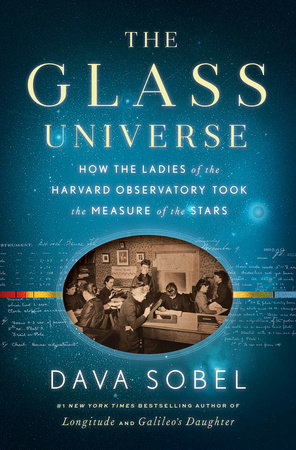Divided We Stand: The Battle Over Women's Rights and Family Values That Polarized American Politics reveals how the battle between feminists and their conservative challengers divided the nation as Democrats continued to support women's rights and Republicans cast themselves as the party of family values. Meanwhile, The Glass Universe offers a prequel of sorts to Hidden Figures' story of Space Age racial and feminist empowerment. In the mid-nineteenth century, the Harvard College Observatory began employing women as calculators, or “human computers,” to interpret the observations their male counterparts made via telescope each night. At the outset this group included the wives, sisters, and daughters of the resident astronomers, but soon the female corps included graduates of the new women's colleges — Vassar, Wellesley, and Smith. As photography transformed the practice of astronomy, the ladies turned from computation to studying the stars captured nightly on glass photographic plates.
Immigration has become a focal point for U.S. debate, community division, and growing alarm. In Latino Heartland, Sujey Vega addresses the politics of immigration, showing us how increasingly diverse towns can work toward embracing their complexity by focusing on one Hoosier community's experience. The Book of Isaias: A Child of Hispanic Immigrants Seeks His Own America tells the story of 18-year-old high school senior Isaias Ramos, who plays in a punk rock group called Los Psychosis and is so bright that when his school’s quiz bowl goes on local TV, he acts as captain. School counselors want him to apply to Harvard. But Isaias isn’t so sure. He's thinking about going to work painting houses with his parents, who crossed the Arizona desert illegally from Mexico.
The horrors and triumphs of America's racial history come alive in a trio of new non-fiction selections. Blood at the Root: A Racial Cleansing in America revisits Forsyth County, Georgia, which at the turn of the twentieth century was home to a large African-American community that included ministers and teachers, farmers and field hands, tradesmen, servants, and children. Many black residents were poor sharecroppers, but others owned their own farms and the land on which they’d founded the county’s thriving black churches. Then, in September 1912, three young black laborers were accused of raping and murdering a white girl. One man was dragged from a jail cell and lynched on the town square, two teenagers were hung after a one-day trial, and soon bands of white “night riders” launched a coordinated campaign of arson and terror, driving all 1,098 black citizens out of the county. He Calls Me By Lightning: The Life of Caliph Washington and the forgotten Saga of Jim Crow, Southern Justice, and the Death Penalty offers another harrowing narrative: In 1957, Washington, a seventeen-year-old simply returning home after a double date, was swiftly arrested, put on trial, and sentenced to death by an all-white jury. The young man endured the horrors of a hellish prison system for thirteen years, a term that included various stints on death row fearing the "lightning" of the electric chair. Finally, The Black Panthers: Portraits from an Unfinished Revolution, focuses on the faces of protest and activism 50 years before Black Lives Matter became a cause. The book offers a reappraisal of the Panthers' history and legacy through portraits and interviews with surviving Panthers as well as illuminating essays by leading scholars.
The Thunder Before the Storm: The Autobiography of Clyde Bellecourt examines another aspect of American racism and social justice, through the eyes of the co-founder of the American Indian Movement.
The LGBTQ community continues as well to wage its battle for equality, respect, and recognition. 2Brides 2Be: A Same-Sex Guide for the Modern Bride is designed to help couples navigate the world of lesbian wedding planning with humor and advice from wedding professional on everything from the logistics of walking down the aisle to wording the invites. Born Both: An Intersex Life covers more somber ground -- the turbulent but ultimately triumphant life of Hida Viloria, who was raised as a girl but discovered at a young age that her body "looked different." She felt "scared and alone, especially given my attraction to girls," until at 26, she began to connect with the intersex community.















